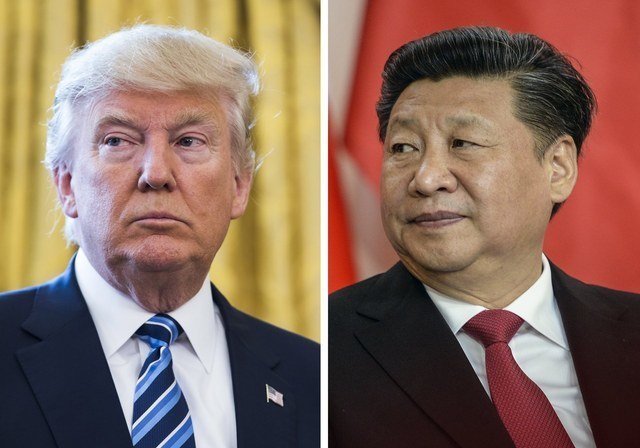 |
|
US President Donald Trumpand Chinese President Xi Jinping
|
Experts agree government taking sides would only increase the pressure placed on Seoul
As the trade war between the US and China intensifies, South Korea is gradually becoming more entangled in the two countries’ struggle. The US has been openly calling on South Korean companies to stop doing business with Chinese company Huawei, the world’s largest telecommunications equipment manufacturer, while the Chinese government has reportedly placed implicit pressure on South Korean companies by asking them to maintain normal business dealings with Huawei. While most experts agree on the need for the South Korean government to develop a nuanced position that’s grounded in the national interest, they caution that the South Korean government would be courting with disaster if it jumped into the middle of the trade war, as some have suggested it should. That would only give the two superpowers an excuse to heap additional pressure on the South Korean government. Instead, it’s important to separate the role of the government and companies and to erect a “firewall” to prevent economic issues from escalating into security issues, experts stress. “If the South Korean government decides to stop dealing with Huawei as the US has demanded, US demands will definitely not stop there,” said Lee Hui-ok, a professor at Sungkyunkwan University. “At a time when relations between South Korea and China are already rocky, South Korea will find itself forced to officially deploy the THAAD [missile defense system], join the Indo-Pacific strategy that’s designed to surround China, and to take part in operations in the South China Sea,” Lee said. “With the US and China in a standoff that is, psychologically speaking, akin to a quasi-state of war, over involvement by South Korea would create unnecessary risks,” said Kim Heung-kyu, a professor at Ajou University. Experts recommend decisions made according to individual company interests “Whatever demands the US government places on the South Korean government, the decisions must be made according to each company’s individual interests. Companies in Europe and Southeast Asia that have made substantial investments in the 5G industry are deciding whether to continue doing business with Huawei according to their own judgment, and not because of the directions of their government,” Kim said. “The South Korean government needs to take on the role of talking reason to the US and China while helping companies continue the projects they’ve been doing with China,” said Lee Hyeon-tae, a professor at Incheon University and an expert on the Chinese economy when asked what role the South Korean government can play without wading into the conflict. According to Lee, the government needs to explain to the US that most of South Korea’s semiconductors — which account for a quarter of the country’s exports — are bound for China and that South Korea suffered a serious blow when THAAD was deployed at the US’ request. It should also remind China of the close relationship between Chinese and South Korean firms and urge it to find a diplomatic breakthrough. Whereas South Korea was the only country trapped between the US and China during the THAAD controversy, several countries are in a similar position to Korea this time around, which creates the potential for joint action. “In addition to South Korea, companies in Taiwan, Japan, and Singapore have been supplying semiconductors and other intermediate goods to Huawei. South Korean diplomats could reach out to the US to emphasize that these other countries have similar exports, and South Korean companies could take joint action with companies in these countries that are in a similar predicament,” Lee Hyeon-tae said. It’s also worth noting that an international consensus is forming that the security concerns that the US has been raising about Huawei remain unproven. “The US claims that, if the Chinese government wanted to, it could extract information using Huawei-manufactured equipment. But that appears to be an exaggeration based on American concerns that Chinese superiority in technological competition could affect the strategic rivalry between the two countries,” said Kim Heung-kyu. By Park Min-hee, staff reporter Please direct comments or questions to [english@hani.co.kr]






